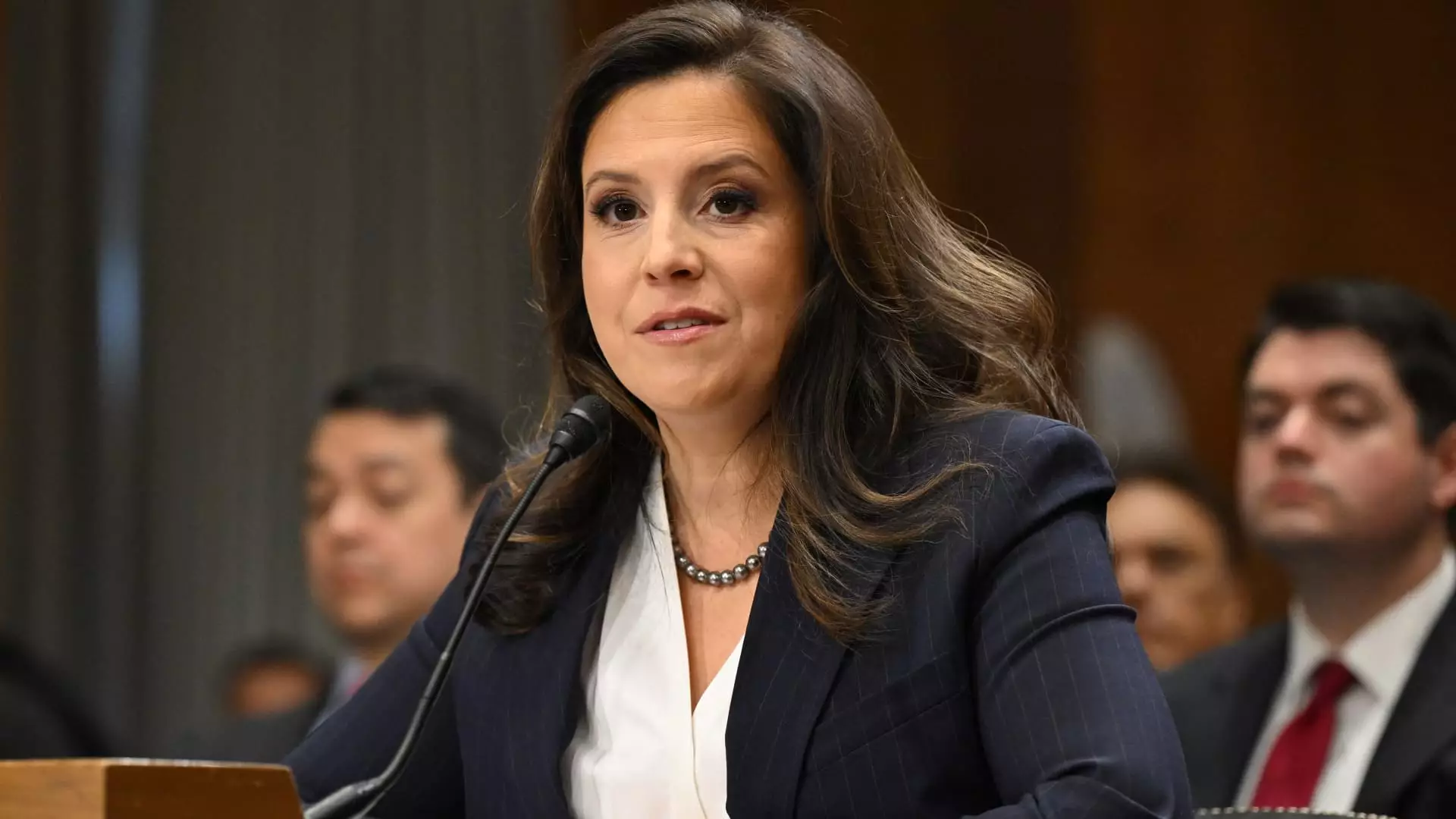The recent decision by former President Donald Trump to withdraw Elise Stefanik’s nomination for U.S. Ambassador to the United Nations is a fascinating, if perplexing, maneuver in the ever-evolving landscape of American politics. Citing the precarious majority of Republicans in the House, Trump emphasized the need for unity and stability in Congress. Yet, at its core, this move raises questions about strategic foresight and the broader implications for Republican leadership. It’s not merely political theater but a testimony to Trump’s evolving strategy as he attempts to shape the GOP’s future—a future that appears to increasingly center around preserving Republican seats rather than advocating for broader global engagement.
Stefanik: The Double-Edged Sword
Elise Stefanik, a rising star in GOP ranks, has been a steadfast ally of Trump since his presidency. However, her withdrawal for a significant role in international diplomacy sends shivers through the party’s more moderate factions. Is the Trump brand synonymous with a retreat from diplomatic engagement? By opting to keep Stefanik in Congress, Trump appears to be prioritizing positioning over the essential engagement required in a role as crucial as the UN Ambassadorship. It seems to reflect an alarming trend within the party to focus on immediate electoral gains rather than long-term diplomatic strategies that could benefit the nation.
The Implications of ‘America First’
Trump’s invocation of the “America First” philosophy resonates powerfully with his base, but it often comes across as a transactional approach to foreign policy. By keeping a key player like Stefanik within Congress, he underscores his commitment to domestic priorities. However, can America truly prosper in a world that values nationalistic narrowness over global cooperation? The ambivalence of his supporters towards international posturing raises a critical concern. Is America willing to sacrifice its global standing for the illusion of unity within its borders? This decision reflects a troubling myopia that may alienate a moderate faction of the electorate that values multinational collaboration.
Succession Dilemmas and Leadership Challenges
With Stefanik’s seat being of paramount importance to the GOP majority, the withdrawal from her UN nomination brings about an interesting dilemma: who will fill her shoes should she ultimately decide to vacate her House seat in the future? Replacing her with a less charismatic candidate could unravel the delicate balance of power within the Republican caucus. Trump’s subsequent remarks on finding another suitable nominee suggest he acknowledges the gravity of the situation but fails to grasp the urgency of proactive leadership in pressing global arenas.
A Rebuff to Ambitious Women in Politics?
Moreover, there exists a chilling message in Trump’s move concerning women in leadership roles. As the political landscape is striving for greater representation of women, a powerful female figure is sidelined when the stakes are undeniably high. What message does this convey to aspiring women leaders? Though aimed at consolidating political strength, the move inadvertently underscores a reluctance to embrace transformative female leadership at high diplomatic levels. This sends ripples beyond party lines; it reverberates through communities yearning for balanced representation in governance.
Political decisions, especially those made by figures such as Trump, foster broader implications that can shift the tides of public sentiment. Through this withdrawal, Trump is, perhaps unintentionally, signaling a regressive tendency to prioritize short-term political calculations over long-term vision—shaping a political narrative that may prove detrimental not only to the Republican Party but also to American standing on the world stage.

Leave a Reply